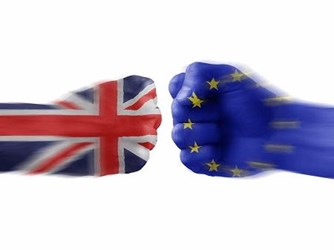Brexit: Biosimilar Makers Beware

By Anna Rose Welch, Editorial & Community Director, Advancing RNA

On June 23, 2016, there will be a vote that could change the landscape of biosimilar development (and all pharmaceutical development) in the U.K. Brexit, or the potential exit of Britain from the EU, has stemmed from a variety of concerns including the nation’s global competitiveness and immigration concerns. However, when it comes to pharma, and biosimilars in particular, Brexit would be very bad for business, says Tim deGavre, the inaugural chair of the newly launched British Biosimilars Association.
A loss of access to the regulatory oversight of the European Medicines Agency (EMA) is one big concern for local pharma stakeholders. A second concern is the potential loss of funding for research available in the EU from the Innovative Medicines Initiative and Horizon 2020. This funding helps foster an active biotechnology and pharmaceutical research ecosystem in the U.K. Without access to this funding, the U.K. would pale in comparison to the EU as a center for drug development and clinical trials. Similarly, “European states are all governed by the same rules and procedures. There’s a common approach to use when developing drugs. If it’s easier to do business in Europe because it’s a common market, drugmakers may have second thoughts about carrying out their clinical trials in Britain,” deGavre explains.
“Regulatory Uncertainty”
 Should the country vote to leave the EU, the U.K. could be left in a period of “regulatory uncertainty.” There is no regulatory pathway in place in the U.K. to approve biosimilars, deGavre explains. “If the U.K. leaves the EU, it raises a number of questions: What happens with all the products that have been previously approved by EMA? What happens with products that are currently being considered for approval by EMA?” And, even more important, if the U.K. is cut off from the EMA, how would it choose to approve pharmaceuticals and biosimilars?
Should the country vote to leave the EU, the U.K. could be left in a period of “regulatory uncertainty.” There is no regulatory pathway in place in the U.K. to approve biosimilars, deGavre explains. “If the U.K. leaves the EU, it raises a number of questions: What happens with all the products that have been previously approved by EMA? What happens with products that are currently being considered for approval by EMA?” And, even more important, if the U.K. is cut off from the EMA, how would it choose to approve pharmaceuticals and biosimilars?
The approval process for pharmaceuticals is currently carried out through a Centralized procedure with the EMA, which is located in London. Because it is geographically close with the EMA, the U.K.’s Medicines and Healthcare Products Regulatory Agency (MHRA) has been able to have even more input into EMA regulatory decisions. Should the U.K. leave the EU, the MHRA would no longer have input into the EMA’s decisions. In fact, the U.K. would have to decide if the regulatory pathway will become local or if the country will still abide by the decisions of the EMA.
Though the country could choose to abide by the decisions of the EMA post-Brexit, deGavre expresses doubt this will be the case. Many on the pro-Brexit side would like to see the nation in control of its borders and decisions. “The whole point is that decisions should be made ‘in-house,’” he says. Though Brexit supporters might argue these concerns can be taken care of, “There are many decisions that will need to be made very quickly. There is going to be that period of uncertainty, which will delay drug approvals and launches, savings for the National Health Service (NHS), and access to medicines for patients,” deGavre says.
What Would The EU Lose Without Britain?
Since the referendum over the U.K.’s membership of the EU was announced, many have questioned and discussed how the U.K. would be impacted following a separation from the EU. However, a question rarely asked is where the EU would be without the U.K. “The U.K. brings a free market approach to Europe,” deGavre describes. The free market perspective can be incredibly important in determining business policies. A poorly crafted policy could inhibit drug development and medical innovation moving forward. As deGavre offers, “The U.K. has a different and powerful voice. The country doesn’t always agree with everything, which, I think, is important for Europe. Having the U.K.’s point of view helps ensure that Europe maintains a balanced and potentially more pro-business environment.”
Even more concerning is the worry that a U.K. exit could embolden anti-EU sentiment in other member states, potentially triggering a domino effect as other countries also consider whether continued membership is in their best interests.
